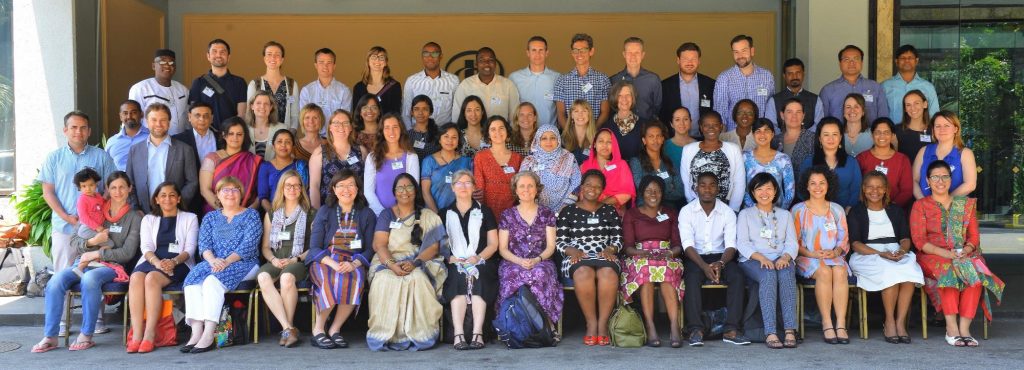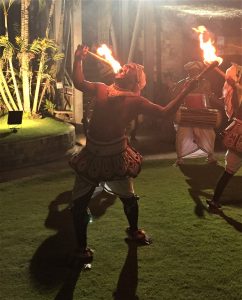The Gender, Agriculture, and Assets Project Phase Two (GAAP2) aims to develop an index to measure women’s empowerment in agricultural development projects. This index builds on the Women’s Empowerment in Agriculture Index (WEAI), which was created for large-scale agricultural development programs. The project-level WEAI will be tailored to diagnose disempowerment through indicators relevant to specific, shorter-term projects to improve project design, monitoring, and evaluation. A midterm workshop on March 9-11, 2017 in Colombo, Sri Lanka, co-organized by the International Water Management Institute (IWMI), reviewed progress on the quantitative and qualitative studies being undertaken by 15 agricultural development projects.
The three-day workshop provided an opportunity for members of the GAAP2 community to discuss their experiences and challenges implementing and analyzing the project-level WEAI (pro-WEAI) research instruments, build community, and plan the next steps for the GAAP2 project. The workshop participants set out to address the following objectives:
- Discuss and learn from the quantitative and qualitative research to date for the GAAP2 project to develop strategies to strengthen projects’ impact on women’s empowerment and improve the pro-WEAI research instruments.
- Build and strengthen the GAAP2 community through sharing information, supporting each other in improving project implementation, and identifying opportunities for collaborative networking and learning at and beyond the workshop.
Workshop sessions delved into topics such as quantitative research, qualitative research, project implementation, region-specific challenges, and the next steps for creating a project-level WEAI. The workshop also allowed for constant discussion and networking, from small group discussions in each session to an evening reception complete with Sri Lankan dancing and fire eating.
Empowerment scores from the projects
In the first session, representatives from the GAAP2 projects shared results from the field. Six projects that have already collected baseline survey data calculated the abbreviated WEAI (A-WEAI), a shorter version of the WEAI used for preliminary analyses. Most projects found that group membership, workload, and access to credit contributed most strongly to disempowerment. These results prompted discussions about which indicators drive empowerment, the importance of context, and the potential for qualitative research to help understand the survey results.
The value of qualitative research
Representatives from projects that had already collected qualitative data shared their results and experiences. Qualitative researchers then led discussions about the importance of qualitative research and shared tips for success in the field. Qualitative research is challenging – it is time-consuming and requires special skill to frame and ask questions in real time. Thus, good qualitative work is expensive. Still, the group agreed that qualitative work is valuable for validating quantitative results, understanding empowerment in context, and anticipating barriers to program implementation, impact, and sustainability.
Improving project implementation in each region
On day two, project implementers led discussions about their experiences and challenges in the field. They highlighted the importance of well-trained enumerators with strong language skills, flexible funding sources, and timely communication between project implementers and researchers. Next, implementers met with researchers from their regions – West Africa, Eastern and Southern Africa, and South Asia – to discuss region-specific challenges. For instance, sampling polygamous households can be tricky because the order and age of wives can influence empowerment. The groups suggested that the pro-WEAI should be customizable by region.
Next steps for GAAP2 and the project-level WEAI
In the coming months, the GAAP2 projects will continue to collect and analyze quantitative and qualitative data about empowerment in agriculture. Meanwhile, the GAAP2 core team will use data and input from the projects to create and validate the pro-WEAI. We will keep you posted when the pro-WEAI is ready to be shared!
GAAP2 is supported by the Bill & Melinda Gates Foundation (BMGF), the US Agency for International Development (USAID), and the CGIAR Research Program on Agriculture for Nutrition and Health (A4NH), with the participation of the CGIAR Research Program on Policies, Institutions, and Markets (PIM).
Resources from the workshop
Additional resources


